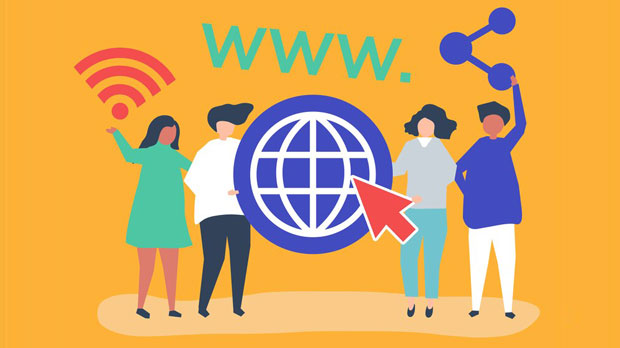When it comes to online privacy and anonymity, choosing the right proxy provider is crucial. Two popular options are Proxy-Seller and PYPROXY, both offering unique features designed to enhance user security and anonymity. However, when evaluating their effectiveness in maintaining privacy, there are important aspects to consider. This article delves into the comparative security features of Proxy-Seller and pyproxy, focusing on their performance in safeguarding anonymity. By analyzing factors like data encryption, IP masking, server locations, and protocols, we aim to provide insights into which service offers superior protection for users concerned about their online identity and data safety. 1. Understanding Proxy Services and Their Role in AnonymityProxy services play a significant role in protecting users’ anonymity by acting as intermediaries between the user and the internet. When a user connects to the internet through a proxy server, the server masks the user's original IP address with its own, making it more difficult for websites to track or identify the user’s real location. Anonymity, in this context, means preventing third parties from gathering personal information or tracking online activities.Proxies also provide a layer of security by encrypting data, which helps protect users from potential cyber threats like man-in-the-middle attacks. The safety of your online activities depends largely on the quality and reliability of the proxy provider. Proxy-Seller and pyproxy are two such providers, and their ability to ensure online anonymity varies in terms of security features.2. Proxy-Seller: A Comprehensive Look at Its Security FeaturesProxy-Seller is known for offering a wide range of proxy services, including residential proxies, datacenter proxies, and mobile proxies. One of its standout features is its strong commitment to anonymity, achieved through the use of various security measures.- IP Rotation and Masking: Proxy-Seller provides IP rotation, which is essential for masking the user’s real IP address continuously, ensuring that each connection comes from a different IP address. This makes it harder for websites to track the user’s real identity.- Data Encryption: Proxy-Seller employs robust encryption methods to secure user data. This prevents hackers from intercepting communication between the user and the internet, providing a higher level of security when compared to basic proxies that do not encrypt data.- Geographical Diversity: Proxy-Seller offers proxy servers located in multiple countries, which helps users mask their geographical location. This feature is particularly beneficial for those who wish to bypass geo-restrictions or engage in activities requiring specific regional IPs.- No Logs Policy: Proxy-Seller ensures that no logs of user activity are stored, which is a critical feature for maintaining anonymity. By not retaining any records of online activity, the risk of data being exposed or misused is minimized.3. pyproxy: A Closer Look at Its Security FeaturesPyproxy, on the other hand, is a proxy service that places a strong emphasis on providing reliable and secure proxies for users who need anonymity. However, it operates slightly differently in terms of its security mechanisms when compared to Proxy-Seller.- IP Rotations and Anonymous Proxies: Pyproxy also supports IP rotation, which helps users avoid being tracked by continuously changing their IP address. However, the service's rotation policy may not be as frequent or as diverse as Proxy-Seller's, potentially leaving users more exposed to tracking over longer periods.- Encryption Standards: Pyproxy uses encryption, but it is crucial to ensure the level of encryption used is up to industry standards. Some users may find that pyproxy’s encryption protocols are not as robust as those of Proxy-Seller, which could be a concern for individuals handling sensitive data.- Limited Geographic Coverage: Unlike Proxy-Seller, pyproxy’s geographical distribution of proxy servers is more limited. While it does offer proxies in multiple locations, the variety may not be sufficient for users needing proxies from certain regions or countries.- Logging Practices: One of the key concerns with pyproxy is its logging practices. While the provider claims to offer anonymous browsing, some users have expressed concerns over potential log retention. This could pose a security risk if pyproxy's logs are exposed or accessed by unauthorized parties.4. Comparison of Anonymity FeaturesWhile both Proxy-Seller and pyproxy offer privacy and security features designed to enhance user anonymity, there are differences that may make one more suitable than the other depending on specific needs.- IP Rotation and Masking: Proxy-Seller offers more advanced IP rotation features, which help in maintaining a higher level of anonymity. With constant IP changes, users are less likely to be detected or tracked. Pyproxy’s rotation, while effective, may not be as diverse or frequent, which could lead to greater vulnerability over time.- Data Encryption: Encryption is a vital factor when it comes to protecting user data from hackers and cyber threats. Proxy-Seller offers strong encryption methods, ensuring that all user data remains private. Pyproxy, on the other hand, does not emphasize encryption to the same extent, potentially leaving users exposed to certain security threats.- Geographical Coverage: Proxy-Seller's global server network provides users with greater flexibility in choosing an IP from a desired region, making it more effective in bypassing geographic restrictions or accessing content restricted to certain countries. Pyproxy's server coverage is less extensive, which may limit users' ability to hide their location effectively.- Privacy Policies and Logs: The no-logs policy offered by Proxy-Seller is a significant advantage for maintaining anonymity. By not storing any logs, Proxy-Seller reduces the risk of personal data being accessed or leaked. In contrast, pyproxy’s logging practices are less clear, potentially putting user privacy at risk.5. Which One is Safer for Anonymity?When comparing Proxy-Seller and pyproxy from an anonymity perspective, Proxy-Seller generally emerges as the safer option. The key factors contributing to its superior security include more frequent IP rotation, stronger encryption standards, a global server network, and a strict no-logs policy. These features work together to provide users with a higher level of protection against online tracking and data theft.Pyproxy, while offering some useful features for maintaining anonymity, may not be as secure due to its limited encryption and potential logging practices. For users who prioritize complete privacy, Proxy-Seller’s more comprehensive security features make it the better choice.6. ConclusionIn the end, both Proxy-Seller and pyproxy have their merits, but if anonymity and security are the main concerns, Proxy-Seller offers more robust protection. Its advanced features, including stronger encryption, frequent IP rotation, and a no-logs policy, make it the safer choice for users who require enhanced privacy. However, for users with less stringent privacy needs, pyproxy could still be a viable option. It is important to evaluate each service based on individual requirements, considering factors such as encryption, server coverage, and logging practices to ensure the best possible online anonymity.
Aug 08, 2025



































































